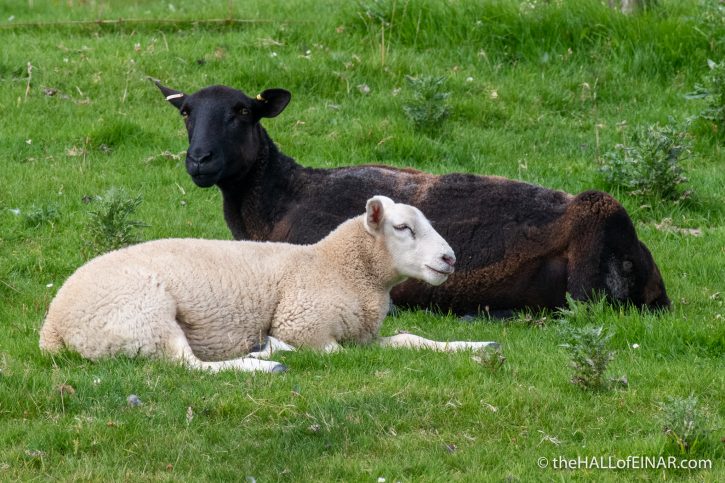Ebony and ivory
There are 33,000,000 sheep in the UK. Not all of them are in Wales; 15,000,000 are in England. That means 300,000 tonnes of mutton and lamb a year.

Keeping sheep is a massive loss-making industry. It’s subsidised by state payments – things like agri-environment schemes, diversification income and the basic payment scheme. These payments often make up 170% of farm income. 170%? That’s because they have to subsidise the massive loss made by the actual farming of lamb, mutton and wool to make an income for the farmers. One in four farming families in the uplands lives in poverty.
On hill farms and in the uplands, keeping sheep means destruction of the natural environment. Sheep remove trees and shrubs and compact and erode soil, causing flooding and landslips. There’s more wildlife in a tiny urban garden than on many sheep farms. And every taxpayer is paying for this destruction.
Farmers living in poverty, a denuded and sheepwrecked natural world and huge subsidies to achieve it. Ebony and ivory; they are as different as the views on the benefits and disadvantages of sheep farming.